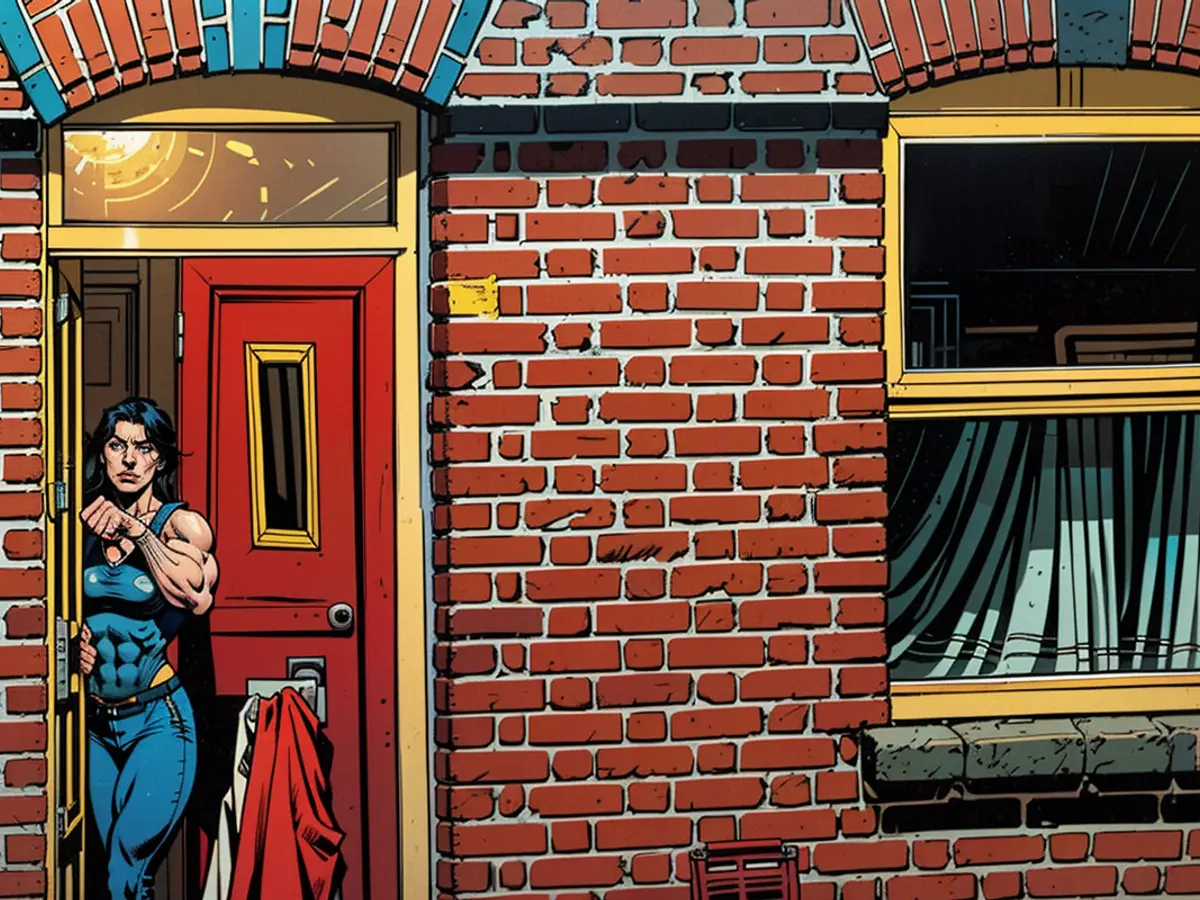London's potential homelessness predicament mirrors Dublin's housing predicament.
In Dublin, the average rent per square meter now costs around 32.80 euros, making it one of the priciest cities in Europe for housing. This has led to a housing crisis, with many residents forced to move out of the city or even become homeless. London faces a similar predicament due to escalating housing costs.
The high demand for housing in cities like Dublin and London has driven up prices significantly. For young individuals, living in these cities is often a goal, but the escalating expenses have become unmanageable for many. Dublin, unfortunately, is one of the European cities with the highest rents. The housing shortage in Ireland can be traced back to the 1980s, where insufficient investment in public housing and excessive bureaucracy led to the present situation. According to a report by the Housing Commission, Ireland is lacking approximately 256,000 houses and apartments, and in 2024, 14,000 people will be homeless, including 2,093 families and over 4,400 children.
The inflated rent alone makes it challenging for people to afford housing in Dublin, leading to increased financial insecurity and a rise in homelessness. Around 60,000 Irish individuals are in line for social housing allocation. According to economist and social analyst, Mansi Rawat, the Irish housing system is driven by profit and privatization. Private developers build on state-owned land, private landlords receive substantial subsidies for providing "social housing," and private operators of emergency shelters, and private investments in high-yield rentals are common.
32.80 Euros per square meter
The soaring rental costs have resulted in more and more people being unable to pay their rent, causing a significant increase in the number of individuals staying long-term in emergency shelters. According to the Deloitte Property Index 2023, rents in Dublin are now the second-highest in Europe, at 32.80 euros per square meter, whereas Munich charges only 19.80 euros for the same. The average rent in Dublin, where more than a quarter of the Irish population lives, is now over 2,100 euros, double the cost ten years ago.
"The uncontrolled high rents and property prices make it increasingly difficult for the younger generation to buy a house, thereby forcing them to spend a significant portion of their income on rent. This leads to financial instability and contributes to the rising homelessness," explains Rawat. Two-thirds of 18- to 34-year-olds in Dublin still live with their parents, and not by choice. Even teachers, social workers, and couples with higher-paid jobs face difficulties buying properties in the city's employment zones, often needing to commute long distances.
The high rents and property prices are causing a decline in the number of job applications in Dublin. However, companies like Ryanair rely on employees in the capital, so at the start of the year, the company bought 25 new houses near Dublin Airport to accommodate its staff. The estate, named Fostertown Place, includes houses with three to four rooms, a garden, and is located 2.5 kilometers from the airport and around 20 minutes from the city center. Ryanair rents out these houses at affordable prices to help their employees cope with the high rental costs.
London is facing a similar housing crisis with rental costs hovering around 26.60 euros per square meter. It is common for working individuals in their forties to live in shared accommodations, and the pandemic has led to a decrease in the desire for metropolitan living. Experts warn that London-based companies may soon need to buy houses and apartments to retain their employees in the city.
While Ireland's "Housing for All" strategy has failed to provide significant relief, the United Kingdom has seen some improvement. Recent reforms in the UK have focused on reducing planning restrictions and promoting more housing construction, particularly around transport hubs. According to Rawat, these measures have eased some pressure on the housing market by increasing the availability of housing and decreasing rents in certain areas.
However, Rawat also emphasizes the need for a fundamental change in housing policy to effectively resolve the housing crisis in both countries. In Ireland, direct government intervention in the form of public housing, stronger rent control, and preventative measures against evictions is essential. In the United Kingdom, a continued focus on a housing-friendly policy could improve the situation further, but local governments need more support to address community-specific needs. Social Justice for Ireland seeks 20% of the total housing stock to be designated as social housing.
In conclusion, the demand for affordable housing in metropolitan cities like Dublin and London has reached a critical juncture. The current housing situation in Ireland is particularly dire, with many faced with the possibility of homelessness. The United Kingdom has seen some improvement with recent housing reforms, but drastic changes in housing policy are needed for both countries to effectively address the housing crisis.
The Housing Commission's report highlighting the lack of 256,000 houses and apartments in Ireland sheds light on the severity of the housing crisis. To alleviate this issue, social justice organizations in Ireland advocate for at least 20% of the total housing stock to be designated as social housing.
In response to escalating rental costs, companies like Ryanair have taken steps to provide affordable housing options for their employees. For instance, Ryanair purchased 25 new houses near Dublin Airport to accommodate their staff and help them cope with the high rental costs.






